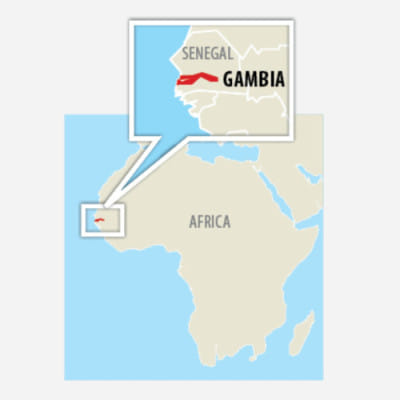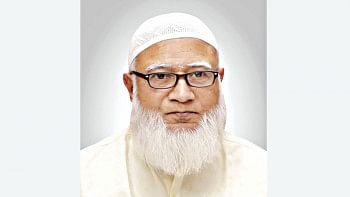How Gambia took the case to the ICJ

Bangladesh and The Gambia are located nearly 11,000-kilometre away and share no significant economic or political relation. But the countries stand together for one cause, justice for the Rohingyas.
The Gambia, a small country in West Africa, is a member of Organisation of Islamic Conference (OIC). After the Rohingyas started fleeing their home in August 2017 following a military crackdown in Myanmar, a delegation of OIC visited Bangladesh, the country that offered shelter to the persecution victims.
Abubacarr Marie Tambadou, justice minister of The Gambia, who worked for years as a lawyer at the UN tribunal and focused on the 1994 genocide in Rwanda, too was in the delegation.
Talking to the Rohingya refugees, Tambadou recalled the Rwanda genocide that wiped out about 800,000 lives in 100 days. Around 250,000 women endured sexual assault during the Rwanda genocide.
After the visit, Tambadou told the US-based Public Radio International, “I have had previous experience interacting with surviving victims of genocide, in particular the 1994 Rwandan genocide.
“When I heard the stories being recounted by the witnesses, I noticed there were striking similarities -- not only in the fact that there is a process of historical dehumanisation that has occurred in Myanmar against the Rohingya, but also the fact that Myanmar authorities had engaged in systematic and organised operations which targeted Rohingya, targeted women.”
“The world failed to help in 1994, and the world is failing to protect vulnerable people 25 years later,” he added.
Later, at the OIC conference, he proposed formation of an Ad Hoc Ministerial Committee on Accountability for Crime Against Rohingya.
Bangladesh, which was seeking a permanent solution to the crisis, and other countries of the 57-member body, strongly supported it.
Eventually, that OIC committee supported Tambadou, whose leadership eventually got the Rohigya genocide case to the International Court of Justice (ICJ).
ICJ is scheduled to issue a ruling today on the case that seeks provisional measures to stop the ongoing genocide in the Rakhine state of Myanmar and hold accountable the perpetrators.
The Rohingyas, for the first time, have found a hope of justice.
Many wondered how The Gambia, a low-income country of agrarian economy trying to recover from an authoritarian regime of Yahya Jammeh, comes to lodge such a case.
“Well, our experiences in The Gambia is what has actually informed the position of the government of The Gambia to speak out against the oppression of others, wherever it occurs around the world,” said Tambadou.
The fact that no one helped the Gambians, no one put pressure on President Jammeh to stop his atrocities has led them to go through a very difficult two-decade period, he said.
“We don’t want others to feel our pain or our fate. We know how it feels like to be unable to tell your story to the world, to be unable to share your pain with others in the hope that they will help. We know what it feels like to be helpless. We have lived through it for over two decades, and we don’t want others to suffer the same fate,” he said.
Shireen Huq, co-convener of Bangladesh Civil Society Platform on Justice and Accountability for the Rohingyas, who was present at the ICJ hearing on the Rohingya case in December, said during the visit to Rohingya camp in 2018, Tambadou could smell genocide on the Rohingyas.
“The Gambia has actually created a giant example of standing beside the persecuted minority. It is a struggle for global justice and humanity,” she told The Daily Star.
The Netherlands, Canada and the UK have supported the case. It is time for others to follow the case, she added.

 For all latest news, follow The Daily Star's Google News channel.
For all latest news, follow The Daily Star's Google News channel. 



Comments